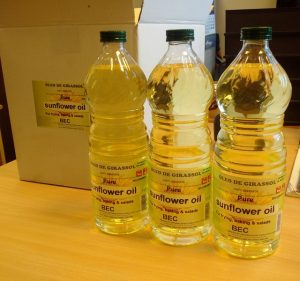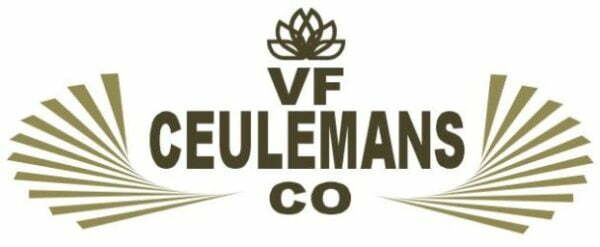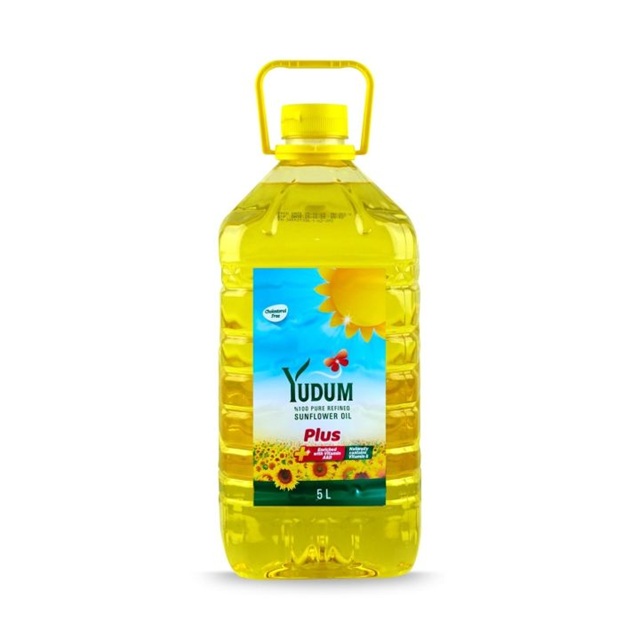Introduction
In recent years, refined sunflower oil has emerged as one of the most sought-after edible oils across African countries. With an expanding middle class, rising health consciousness, and changing dietary habits, the demand for sunflower oil in Africa is growing rapidly. Once considered a niche product, sunflower oil is now a kitchen essential across urban and rural households alike.
In this article, we explore the factors driving the demand for refined sunflower oil in African markets, the economic and trade implications, leading importers and suppliers, and the health benefits that make it a preferred cooking oil. We also delve into the competitive landscape and offer projections on what the future holds for this booming sector. Whether you’re looking to buy sunflower oil in Africa, understand sunflower oil import statistics Africa, or explore the future of the edible oil industry in Africa, this guide provides comprehensive insights.
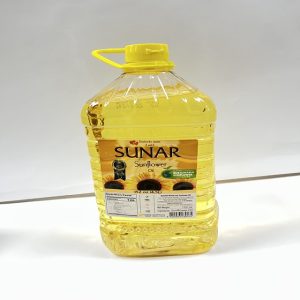
1. What is Refined Sunflower Oil?
Refined sunflower oil is extracted from sunflower seeds and processed to remove impurities, color, odor, and free fatty acids, making it suitable for cooking and frying. Its light taste, high smoke point, and rich content of unsaturated fatty acids and vitamin E make it a healthier alternative to palm oil or animal fats.
Types of sunflower oil:
- Refined Sunflower Oil (RBDW Sunflower Oil) – Widely used for cooking.
- Cold-Pressed Sunflower Oil – Often used in cosmetics or health applications.
- High Oleic Sunflower Oil – Rich in monounsaturated fats, ideal for industrial frying.
2. Factors Driving Demand in African Countries
a. Rising Urbanization and Population Growth
Africa is undergoing one of the fastest urbanization rates globally. The urban population is expected to triple by 2050, driving demand for processed foods and edible oils, including sunflower oil. This is significantly increasing sunflower oil demand in Nigeria, Kenya, Ghana, and beyond.
b. Health Awareness and Lifestyle Shifts
Refined sunflower oil is cholesterol-free, contains healthy fats, and is considered a heart-friendly option. In African urban centers, there’s a visible shift towards healthier cooking oil for African market, and sunflower oil is gaining preference over traditional palm oil or margarine.
c. Changing Dietary Patterns
Western influence and culinary globalization have led to increased consumption of fried foods, baked items, and fast food. Sunflower oil is favored in:
- Restaurants
- Hotels
- Street food stalls
- Bakeries
- Food processing units
d. Governmental Support and Import Liberalization
Some African countries have liberalized the edible oil importation sector. Countries like Nigeria, South Africa, Kenya, and Ghana have reduced tariffs or provided incentives to oil importers, encouraging easy access to refined sunflower oil.
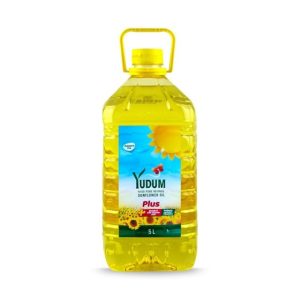
3. Leading African Markets for Refined Sunflower Oil
a. South Africa
South Africa is the largest consumer and producer of sunflower oil in Sub-Saharan Africa. Despite domestic production, refined sunflower oil imports still account for a significant share due to rising demand in the cooking oil market Africa.
b. Nigeria
With a population exceeding 220 million, Nigeria is among the largest edible oil importers in Africa. The country relies heavily on imports, including refined sunflower oil, especially for its large food processing industry. Many businesses seek to buy sunflower oil Africa to meet production needs.
c. Kenya and East Africa
Kenya, Uganda, Tanzania, and Rwanda have seen a surge in sunflower oil usage. The oil is widely used in households, catering services, and schools. Local refining is growing, but edible oil importers in Kenya continue to rely heavily on imports from Ukraine, Turkey, and Russia.
d. North African Countries
Countries like Egypt, Algeria, and Morocco have long depended on sunflower oil imports. Egypt, in particular, is a massive consumer due to its baking and frying-heavy food culture.
4. Major Exporters Supplying African Markets
a. Ukraine and Russia
Before the Russia-Ukraine war, Ukraine was the world’s leading exporter of refined sunflower oil, accounting for over 50% of global exports. Despite geopolitical disruptions, both countries remain key sunflower oil suppliers to Africa.
b. Turkey
Turkey has emerged as a reliable exporter of refined, bottled sunflower oil to African nations, especially East and West Africa.
c. Argentina and the EU
Argentina and EU countries like Germany and Netherlands supply premium-grade sunflower oil to high-income African markets, such as South Africa and Mauritius.
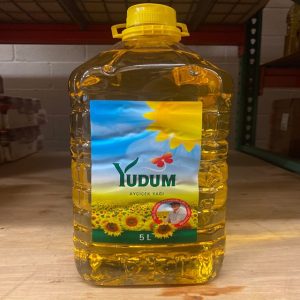
5. Distribution Channels in Africa
a. Wholesale Importers and Distributors
Bulk importers bring in sunflower oil in:
- Tanker trucks
- Flexi-bags
- Bulk drums They distribute it to refiners, packaging companies, or large retailers, acting as wholesale sunflower oil distributors.
b. Retail and Supermarket Chains
Major supermarket chains like Shoprite, Game, Nakumatt, Carrefour, and Choppies stock branded sunflower oil bottles, catering to middle- and high-income consumers.
c. Open Markets and Local Vendors
In informal economies, sunflower oil is often sold in:
- 1L, 2L, 5L, or 20L plastic containers
- Refillable bottles
- Street market stalls
d. Online and E-commerce Platforms
Online retailers like Jumia, Kilimall, and Takealot are now delivering cooking oil to homes, adding convenience and reaching remote areas.
6. Economic Impact and Job Creation
The rising demand for refined sunflower oil has catalyzed job creation in:
- Local refining plants
- Packaging factories
- Retail distribution
- Transport and logistics
- Marketing and branding
Some governments have begun investing in domestic sunflower farming to reduce import dependency, further boosting rural employment and contributing to the future of the edible oil industry in Africa.
7. Challenges Facing the Sunflower Oil Sector in Africa
a. Import Dependency
Most African countries depend heavily on imports for refined sunflower oil. Fluctuations in global prices, shipping delays, or geopolitical events can impact local availability and affect sunflower oil import statistics Africa.
b. Currency Fluctuations
Weak or unstable local currencies make it difficult for importers to maintain pricing, leading to sudden increases in retail prices.
c. Poor Infrastructure
Road networks, storage facilities, and energy supply issues can delay delivery and raise transportation costs for sunflower oil distributors.
d. Competition with Palm Oil
Palm oil, which is cheaper and locally produced in countries like Nigeria, Ghana, and Côte d’Ivoire, competes directly with sunflower oil, especially in low-income households.

8. Health and Nutritional Benefits Fueling Demand
Refined sunflower oil offers several health benefits, making it appealing to Africa’s growing health-conscious consumers:
- High in Vitamin E: Promotes skin and immune health.
- Cholesterol-free: Supports cardiovascular wellness.
- Rich in Omega-6: Aids in brain function and cell growth.
- Non-GMO and Vegan-friendly
It’s ideal for:
- Deep frying and pan frying
- Salad dressings
- Mayonnaise and sauces
- Baking pastries and bread
9. Investment and Local Production Opportunities
As demand grows, local entrepreneurs and governments are eyeing investment opportunities in sunflower cultivation and refining:
- Uganda and Tanzania have launched sunflower farming incentives.
- South African refiners are expanding capacity.
- Private equity firms are entering the agri-processing value chain.
This not only helps in reducing import bills but also stabilizes prices and increases self-sufficiency.
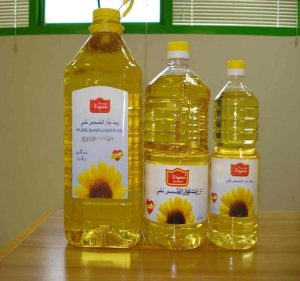
10. Future Outlook for Sunflower Oil in Africa
The future for refined sunflower oil in Africa looks promising, driven by:
- Young and growing populations
- Urbanization and rising middle class
- Government efforts toward food security
- Expansion of retail networks
- Technological advancement in oil packaging and logistics
Projected CAGR (Compound Annual Growth Rate) of sunflower oil demand in Africa: 8%–10% from 2024 to 2030.
Conclusion
The demand for refined sunflower oil in African countries is no longer a trend—it’s a transformation. Driven by health consciousness, population growth, and modernization of food systems, sunflower oil is becoming the preferred edible oil in both urban and rural Africa.
While challenges such as import dependency and infrastructure persist, the long-term outlook is optimistic. For producers, exporters, distributors, and investors, Africa presents one of the fastest-growing markets for sunflower oil globally.
As nations prioritize food security and self-reliance, expect more investments in local sunflower farming, refining, and bottling. The golden oil is more than just a cooking ingredient—it’s a vehicle of health, economic growth, and cross-border trade in the heart of Africa.
